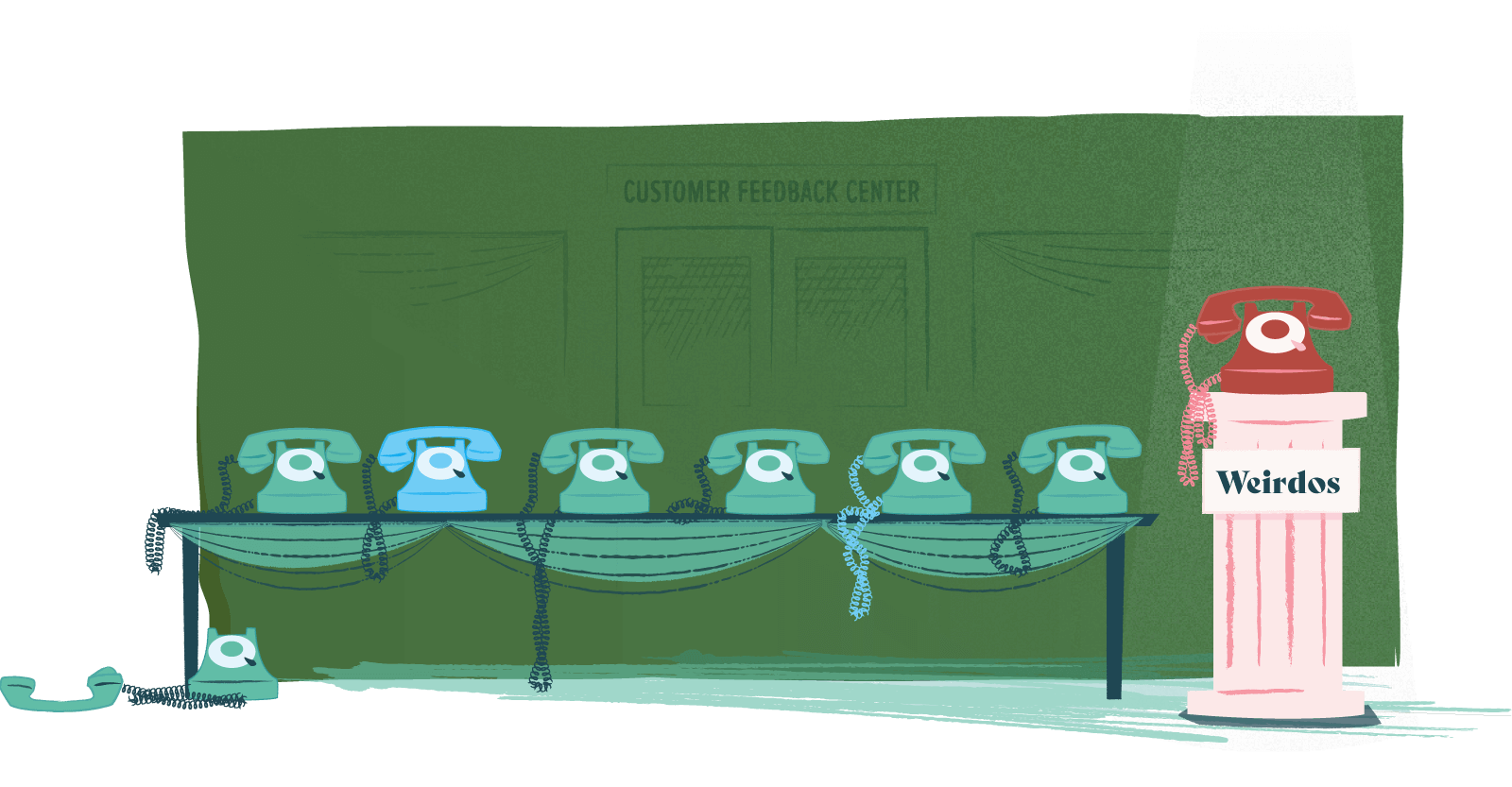Making an honest buck
The link between your weirdos, truth-telling, and business longevity

“Move at the speed of trust.” –Adrienne Maree Brown, Emergent Strategy
“Nothing is as fast as the speed of trust. Nothing is as profitable as the economics of trust. Nothing has more influence than a reputation of trust.” –Stephen M.R. Covey, The Speed of Trust: The One Thing That Changes Everything
“When you do not trust people, people will become untrustworthy.” –Lao Tzu, Tao Te Ching
…
Anyone who’s worked in the service industry, even for a single day, can tell you the customer is not always right. In fact, if you want to hear some truly astonishing stories about human foibles, ask anyone who’s worked in hospitality, tech support, or customer service to tell you about their most memorable customer encounters.
This question — of how to tune in to the most meaningful customer input, and find the right signals amidst a whole lot of noise — is at the heart of our obsession with weirdos, because weirdos are an excellent source of feedback and insight.
Your weirdos deserve your ear, and your trust, because they’re invested in your success. Their relationship with you may be a business relationship, but it’s far from transactional. There’s a mutuality to your connection, because your work is helping them do something that matters to them.
So how can you ensure that you hear from them when it counts?
The short answer is: you cultivate mutual trust, and build them a hotline.
Heart and craft breed trust
Trust that you’ll deliver what you said you would, when you promised it.
Trust that you’ll respect your customers’ privacy, feedback, time, and intelligence — their attention, and the intentions they have for their lives.
Trust that your prices are fair.
Trust that you care about the things you say you care about.
Trust that ultimately, you value people more than profits.
Cultivating trust is an art, not a science. But it’s a natural product of working with heart and craft — that is, doing work you genuinely care about, with skill and attention to quality.
Calling 1-800-WEI-RDOS
Here’s a hard truth: your weirdos will sometimes tell you hard truths.
And they’ll do it because they care enough, and trust you enough, to stick around and give you a chance to put things right. That’s a gift — a generous one, even if it might not feel that way at first.
While all of us need boosters from time to time, we need truth-tellers even more, especially if we’re looking to grow. Our weirdos are the ones unafraid to tell us we’ve got something in our teeth — and we don’t know about you, but we’d rather know that before we turn on the camera.
The shape your hotline takes5 matters far less than listening with a truly open mind and heart, and setting your ego aside as much as humanly possible.
When Impossible Foods approached top-tier restaurants about selling their burgers, they were setting themselves a very high bar: not only did the burger have to taste amazing, and sizzle like meat, but it needed to sell to meat-eating restaurant patrons who’d never heard of it before.
How many taste tests did they perform before they got a yes from David Chang6, do you think? Hundreds? Thousands? Hundreds of thousands?
When LEGO went camping with customers, they learned that kids simply didn’t play with the sets that LEGO’s executive team had come up with. They wanted ninjas, skeletons, and snakes — so LEGO gave them Ninjago.
These companies were prepared to hear hard truths, and adapt accordingly. And they were able to grow precisely because they stopped to check with their weirdos first.
This is why cultivating connections with your weirdos is so important: they’re the chefs who’ll tell you if your burger isn’t up to par, and exactly what you need to do to make it into something they’d confidently put on their menu. They’re the geeks who care about the same qualities you do — and care about them enough to want your best effort.
Questions to ask yourself:
- Where are we succeeding at being trustworthy?
- Where do heart (care) and craft (quality) show up in our work?
- Where could we improve our trustworthiness?
- How are we demonstrating (or not demonstrating) that we value people more than profits?
- What kind of “hotline” could we create for our weirdos?
- How will we make it easy, meaningful, and mutually valuable for them to give us their input?